Customer Services
Copyright © 2025 Desertcart Holdings Limited


📖 Unlock the mind of a literary genius before everyone else does!
The Book of Disquiet by Fernando Pessoa is a seminal work of existential literature composed of 481 poetic fragments exploring life’s absurdity and introspection. Translated by Richard Zenith, this Penguin Classics edition offers a profound, semi-fictional journey into the mind of one of the 20th century’s most innovative writers. Highly rated and cherished by intellectual readers, this used copy in good condition invites you to experience a timeless masterpiece that resonates deeply with modern existential thought.

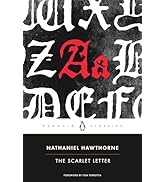



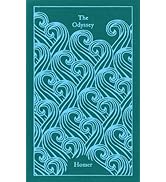



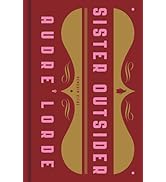
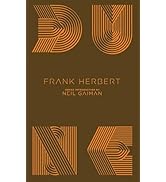
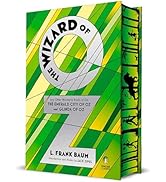
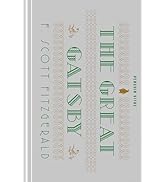

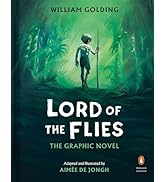

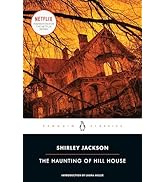
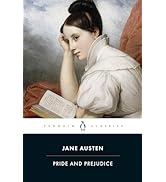
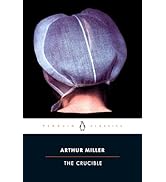

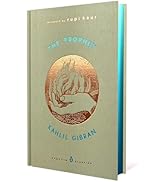

| Best Sellers Rank | #8,919 in Books ( See Top 100 in Books ) #31 in Author Biographies #253 in Classic Literature & Fiction #605 in Literary Fiction (Books) |
| Customer Reviews | 4.7 out of 5 stars 1,205 Reviews |
D**S
Enjoyable Poignant Writing
Excellent observațional and self reflecting writing by Pessoa from all his literary personalities. I don't know why I haven't read him or even heard of him before. I recommend this book since Pessoa writes what we're all thinking but we just can't put it into words. You'll find yourself in this book.
W**H
Disquieting Semi-Fiction of Genius
"B of D" is a work of pure genius written in gloriously lyrical, existential prose: it wants to be poetry and, at times, it is. Pessoa is a profoundly introspective and honest writer who defined existential themes based upon his frank study of his own life and dreams: it's possible that Pessoa is the most honest writer who ever lived. He is highly self-critical, self-effacing and suffers from the "disquiet" of his simple life as a bookkeeper in Lisbon. He wrote "B of D" in that richly germinal literary era in Europe of Proust and Joyce. He composed 481 fragments about the absurdity of life by which he means the inability of man to understand his own existence. "Each of us is a speck of dust that the wind lifts up and then drops." Pessoa's disquieting themes eventually grew into the philosophical worldview claimed by the existentialists but he was an existentialist before many of them. Pessoa writes with the passion of Nietzsche. He is Camus before Camus. He has Kafka's rich sense of the absurd. He experiences daily Sartre's nausea. I devoured every word of "B of D" by Pessoa who had the misfortune to remain largely undiscovered and unread until long after his death. His work is existential in the genre of Camus or Sartre ("I think, therefore, I am a mustache.") He is dark, at times, but his introspection is oceanic in its breadth, depth and turbulent existential Angst. His writing has been described as "semi-fiction" and "anti-literature" by his translator. Great writers inevitably challenge the logic of traditional syntax as well as the genres in which they write to transform their genres by the genius of their innovative literary styles which become legacies in themselves. Pessoa writes in fragments which are neither fiction nor poetry but are autobiographical and as such show his disconnect both with life and his own art -- there is no real flow between one fragment and the next like life itself in his existential worldview. He considered his life "an intermission with band music." He also wrote in heteronyms under several noms de plume as if to say he couldn't really even attest to his own single identity as a writer. His fragments are deep, consuming, intellectual dives into his own everyday life. Normally, autobiography is a sign of an immature writer, which Pessoa clearly is not. He writes about his dull job as an accountant among Lisbon's streets and his sightings while smoking at outdoor cafes as well as about thunderstorms, solitude, dreams, the absurdity and futility of life, art, sex, JJ Rousseau and his work. My only criticism of Pessoa comes from his odd observations and poor advice about sex. His translator, Richard Zenith, believes it was possible that Pessoa died a virgin. I make it a practice never ever to take advice on sex from priests, nuns and lifelong virgins. Richard Zenith's translation is truly luminous and he brings rich nuance into the discourse of every line. Like my copy of "The Recognitions" by William Gaddis, I have underlined fragments on nearly every page because it is so deeply relevant, honest and compelling in its pure intellectual grandeur. Here are a few favorite passages which stand out for me from "B of D": "Irony is the first sign that our consciousness has become conscious and it passes through two stages: the one represented by Socrates, when he says, "All I know is that I know nothing' and the other represented by Sanches, when he says, 'I don't even know if I know nothing.'" "No one understands anyone else... However much one soul strives to now another, he can know only what is told him by a word -- a shapeless shadow on the ground of his understanding... I love expressions because I know nothing of what they express." "I don't know the meaning of this journey I was forced to make, between one and another night, in the company of the whole universe... We achieve nothing. Life hurls us like a stone, and we sail through the air saying, 'Look at me move.'" "The only attitude worthy of a superior man is to persist in an activity he recognizes is useless, to observe a discipline he knows is sterile, and to apply certain norms of philosophical and metaphysical thought that he considers utterly inconsequential." "All life is a dream. No one knows what he's doing, no one knows what he wants, no one knows what he knows. We sleep our lives, eternal children of Destiny. That's why, whenever this sensation rules my thoughts, I feel an enormous tenderness that encompasses the whole of childish humanity, the whole of sleeping society, everyone, everything. It's an immediate humanitarianism, without aims or conclusions, that overwhelms me right now. I feel a tenderness as if I were seeing with the eyes of a god. I see everyone as if moved by the compassion of the world's only conscious being. Poor hapless men, poor hapless humanity! What are they all doing here?" He worked uselessly every business day for a brute capitalist and recognized by night that his writing was utterly hopelessly, inscrutably and irretrievably futile. The miracle, and the sense of this should not be lost upon you, is that every day he still writes anyway like Van Gogh painting despite making only one sale in his lifetime. I recognized Pessoa instantly from the first few fragments of his life in "B of D": I am Pessoa. And he is also you. "Book of Disquiet" is life changing. I can't remember ever having been so disappointed to see a book come to an end: it's that good. I implore you to read this immortal literary work of genius by Pessoa. It may be absurd, and even futile, to do so but sometimes the best answer to both is simply to be just as absurd.
D**E
Amazing book!
Arrived in great condition.
M**N
Brilliant writing
The Book of Disquiet --Fernando Pessoa Really enjoyed this book, one of the best I've ever read. In the form of a diary, with short entries of a sentence, a paragraph, or maybe a page. Poetic and introspective, with absolutely no plot to get in the way, it needs to be read slowly. Richard Zenith's translation, from the original Portuguese, is well noted, with methods explained. That this, posthumous masterpiece, was almost undiscovered, would have been tragic. I never write in, or mark up books, nor do I take notes. However, this one deserves a second reading where I may just do that. Perhaps I'll carry this with me, reading an entry or two, in quiet moments. I've had so many thoughts in my life, that I foolishly considered unique. Yet here they all are, expressed in elegant tedium. Highly recommended.
A**A
A beautiful oppression
I wouldn't advise dipping into this book if you're feeling happy---it's sure to knock you off your cloud. I would also advise against reading it if you're feeling melancholy---it will plunge you into the pits of despair. Only if you're feeling a nameless oppression and to wish to see your existential condition examined from a beautifully written literary perspective, would I suggest these musings of Bernardo Soares. You can safely approach this work if you do so with the curious equanimity of an anthropologist visiting the country called Inertia for the first time---the dreariness is so extreme that it's fascinating as a field study, but fortunately for you, you can pack up and leave at any time. Poor Fernando Pessoa couldn't leave, and had to invent the remarkable persona of Bernardo Soares to express the anguished monotony of his days. Bernardo is an accountant, a loner, and bored out of his mind. Nothing happens in his external life, but his internal universe is complex, rich, and full of extraordinary insight. He is a "...a prose writer who poeticizes, a dreamer who thinks, a mystic who doesn't believe..." according to Richard Zenith, the competent translator. When you sit with Bernardo in stunned exhaustion as he labors long and uselessly to express his thousand forms of angst, you realize: nowhere else will you find the torment and tediousness of mundane existence so tenderly articulated. Bernardo goes about this with the determined insistence of a somnambulist. Pessoa has said that Bernardo was the heteronym that he used where he was drowsy, and Bernardo is indeed given to uninhibited and endless reverie. At 450 pages of small print, it is a unique form of self-punishment to read more than twenty pages at one sitting. It can also be some of the most rewarding reading you will ever do. The journal-like entries are numbered, so it's easy to pick up where you left off if you want to read in increments. It's also good to read this in conjunction with one of Pessoa's volumes of poetry, where the other heteronyms offer rational and emotional relief, rounding out the work of this astonishing and little-known genius.
G**S
Here is the antidote. (To be taken in tincture.)
In India there are bitter vegetables people eat for their health -- to ward off diabetes and counter the effects of a diet over-high in refined sugars. When I first lived in India, I hated those vegetables. Now I like them best of all. “Bitter” is not always a negative adjective. It may also restore life. It can serve as an antidote. There is something similar about The Book of Disquiet -- a book about failure, tedium and disconnection that is repeatedly beautiful and compelling, even life-giving. Please excuse me for quoting a blurb. It seems to me exactly right. John Lancaster wrote, “In a time which celebrates fame, success, stupidity, convenience and noise, here is the perfect antidote, a hymn of praise to obscurity, failure, intelligence, difficulty and silence.” If you, too, are spooked or nauseated by a world in which people go around trumpeting their own busyness and importance, reciting what appear to be advertisements for themselves, then this book may well feel like an antidote -- as well as a drastically more honest assessment of life, the way it actually feels, as opposed to how it is supposed to feel. If I may give advice, I strongly recommend using this book as a “tincture”, just a few pages at a time. I do not believe Pessoa would be offended even if you set it in the bathroom to accompany intestinal disquiets. As Zenith points out in his introduction, reading at random is actually ideal. I read this book over six months and was glad of its company -- but I think, if I’d sat down and tried to read through it in a week, I might have found it insufferable. You could O.D. on ennui. Taken slowly in small doses however, it is brilliant bitter company.
L**R
It's truly a lifetime gift for those who enjoy the pleasures of being an introvert and student of ...
Now and then a book of creative genius floats up out of the ocean of literature. This is one of those special books, in this case the Joyce or Kafka of Portugal who never published during his lifetime. Now we have this jewel of reflective thoughts and feelings about the imaginative writer's life, his opinions on world literature, his thoughts on literally everything in his quiet reflective life. It's an inner journey into the mind of a literary genius who shares his thoughts and insights in a journal of meditations. Pessoa was a man of solitude and loneliness but he was not miserable overall. He worked at an office job and wrote many books and stories under various pennames who were different personalities with their own literary styles. Most of what he wrote was not published in his lifetime and this protected him from the distractions of literary fame. Sample the book first and if it doesn't draw you into his reflective literary world on life's ups and downs, move on; but if you are drawn immediately into his thinking and feeling about life and literature and the joys of solitude and anonymity, you will want to read the entire wondrous gift of this complex solitary philosopher of the life of the storytelling artist. It's truly a lifetime gift for those who enjoy the pleasures of being an introvert and student of human experience. Try it. You'll know almost immediately this book will be a friend for life, solace for the quiet meditative times. As a writer I was charmed in an instant. Like dipping into a deep complex beautiful happy sad diary of a human singularity, a literary genius quietly reawakening his life's most poignant thoughts and feelings about a beautiful mind that has come and gone and left this gift of remembrances and reflections.
B**O
A Portugese "Unquiet Grave," sometimes, but a lot more
Pessoa adopts one of his fabled personae—an assistant bookkeeper in a colorless office in Lisbon, in this case--as a launch pad for observations about the neighborhood and the city, and for apercus about art, life, and everything else. Often contrarian and eccentric, they are almost always provocative. So I made my way very slowly through this dense diary/journal, chewing over passages and following mental tangents inspired by Pessoa. The best illustration might be some of the shorter passages themselves. These were culled from a mere 10 pages toward the end, though I flagged hundreds along the way. This was a unique reading experience, one of the monuments of my literary life. I killed my will by analyzing it. If only I could return to my childhood before analysis, even if it would have to be before I had a will! I’d like to be in the country to be able to like being in the city. I like being in the city in any case, but I’d like it twice over if I were in the country. It often happens that I don’t know myself, which is typical of those who know themselves. Having seen how lucidly and logically certain madmen justify their lunatic ideas to themselves and to others, I can never again be sure of the lucidness of my lucidity. I have never been able to lose myself in a book; as I’m reading, the commentary of my intellect or imagination has always hindered the narrative flow. Pride all by itself, unaccompanied by vanity, manifests itself in timid behavior. There’s no happiness without knowledge. But the knowledge of happiness brings unhappiness, because to know that you’re happy is to realize that you’re experiencing a happy moment and will soon have to leave it behind.
Trustpilot
1 month ago
4 days ago